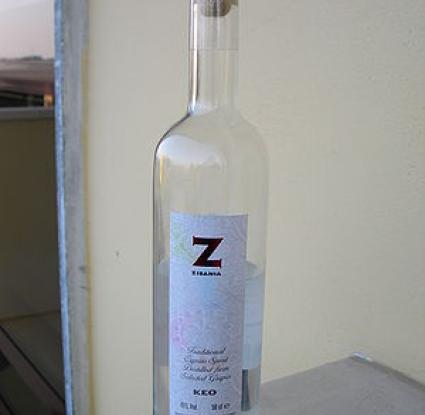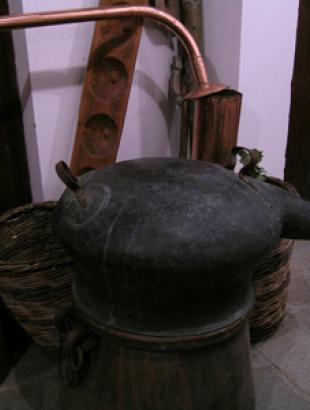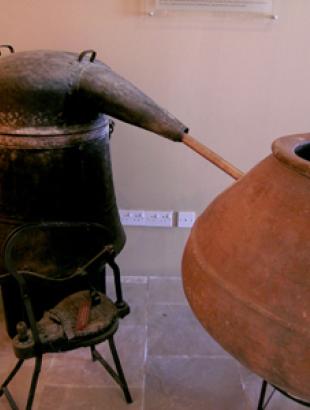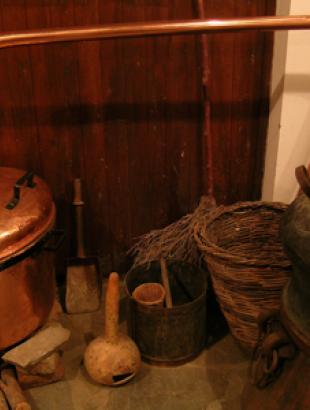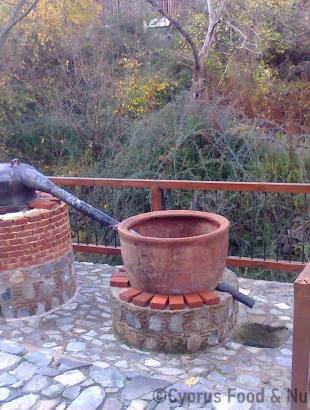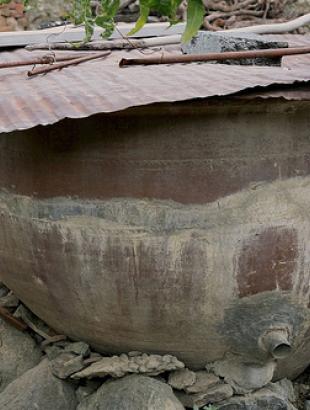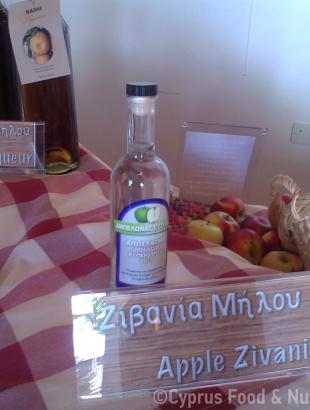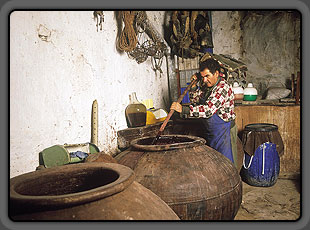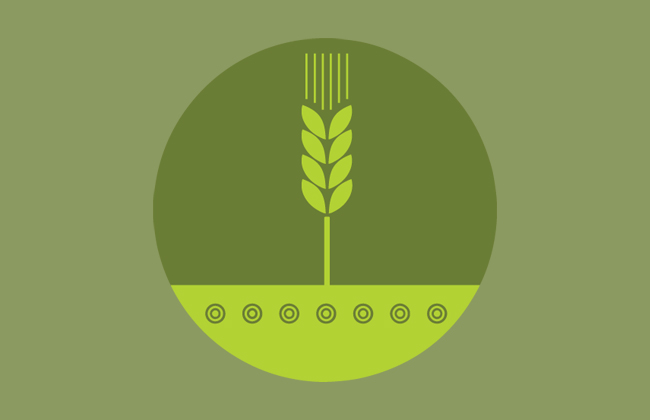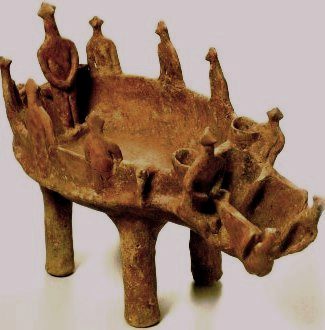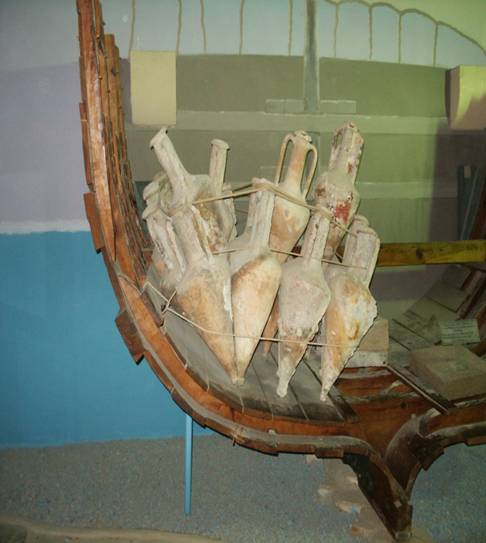Name - Origin
It is an alcohol produced from distilled grape marc (tzivana or pyrinia) of grapes, raki, tsipouro (Yangoullis 2009, entry ζιβάνα - ντζιβάνα - ζιβανία - τζιβανία,η, 156).
Zivania was tsipouro made with fermented grape marc. They were placed in the still's cauldron and boiled over a low fire. This is how zivania was produced ( Ionas 2001, 99-100).
The pot for distilling zivania was called a lambikos, and was commonly used in villages. The testimony of a resident of Palechori states: "In my grandfather's yard they had a lambiko where many villagers would come to extract their zivania. Our door was always open. (Psillita Ioannou 2010, 447).
Functional and symbolic role
Zivania was quite a strong drink that was consumed by the Cypriots in the same way as wine, or they would use it to rub the body when they were sick. It was part of the farmers' breakfast before they would begin their day, and was also consumed with meze. In some monasteries they used to prepare blond or red zivania with the addition of sugar and cinnamon (Ionas 2001, 99-100).
In earlier times, up to the mid-20th century, the new couple was not greeted on Sunday. The wedding was completed in the evening and people would wish the newlyweds on Monday, when they would give them their gifts. On this day, it was necessary to treat people to a drink, mainly brandy, wine or zivania, to toast to the health of the newlyweds. The accompaniments to the drink were varied. They would serve almonds, walnuts, peanuts, raisins, dried figs, zizifa, trimithkia, koudame, soutz̆oukkon, sykopitta, small pretzels with sugar made especially for the wedding. On Monday morning they would give the newlyweds the ximeroma which was a sum of money. The relatives would also give kanis̆sia (gifts) and food. In some villages they would give wheat and barley, in others oil, zivania, wine and in others a basket of produce. At the wedding table, a person would stand near the table, and offer zivania and wine using a koloj̆in (the one which had the wedding bun hanged around its neck) (Protopapa 2005, vol. B, 197, 266, 307, 324).
Additional information and bibliography
Since the Venetian rule and until today, the production of zivania has been a basic occupation and an important source of income for Cypriot vine growers. The distillation of zivania is a traditional art that has been handed down from generation to generation for centuries in almost all the wine villages of Cyprus. Usually, the alcohol content of zivania is on average between 47-52%. Zivania has many uses. It is widely used for therapeutic purposes, such as for abrasions, for colds, for disinfecting wounds, for fainting, for toothache, as a winter tonic, etc.
Zivania is nowadays also produced from apples. Kyperounda is known for producing various apple products, including zivania.
Yangoullis K. G. (2009), Thesaurus of the Cypriot dialect. Interpretative, Etymological, Phraseological and Nomenclatural Dictionary of the Medieval and Modern Cypriot Dialect, Theopress Publications, Nicosia.
Ionas I. (2001), Τα παραδοσιακά επαγγέλματα της Κύπρου, Publications of the Centre for Scientific Research, XXVII, Nicosia.
Petrou-Poeitou E. (2013), Where do they come from. Words and stories from the world of taste, Epiphaniou Publications, Nicosia.
Protopapa K. (2005), Έθιμα του παραδοσιακού γάμου στην Κύπρο, Vol. A-B, Publications of the Centre for Scientific Research, XLV, Nicosia.
Psilita-Ioannou P. (2010), Παλαιχώρι: Ιστορία και Πολιτισμός, Platypus Publishing, Athens.
Stalo Lazarou, Demetra Dimitriou, Demetra Zannetou, Tonia Ioakim, Savvas Polyviou, Petroula Hadjittofi, Argyro Xenophontos

